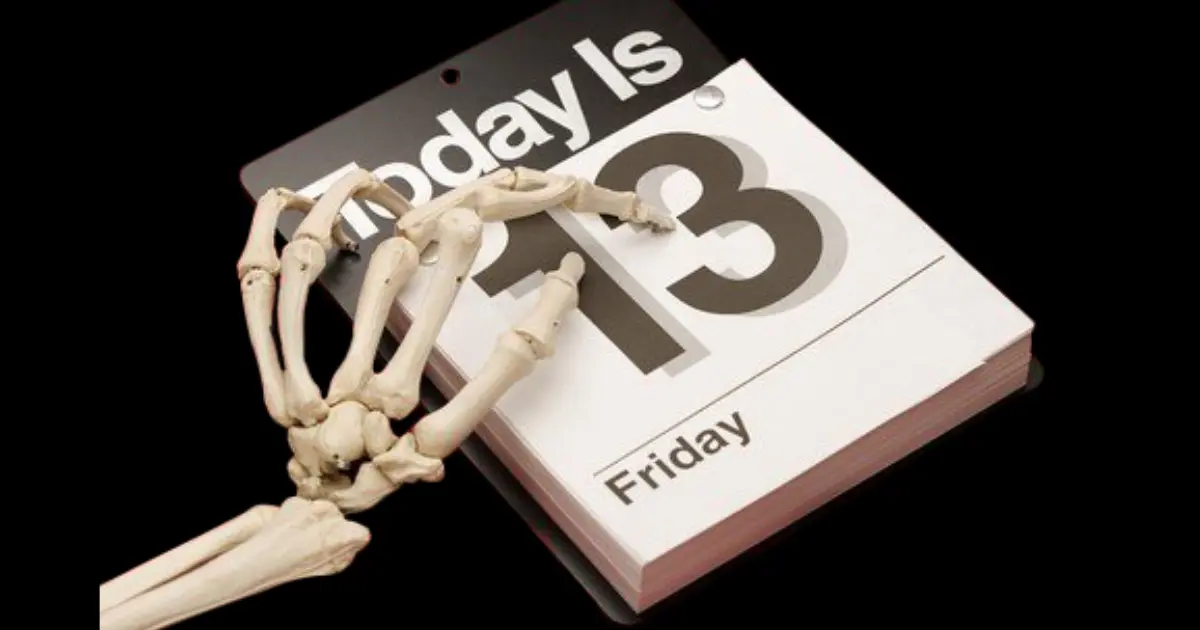Friday the 13th is a day shrouded in superstition and mystery, often seen as a harbinger of bad luck. The combination of Friday and the 13th day of the month has long been considered an ominous date in Western cultures, leading to widespread fear and avoidance of certain activities on this day. But where did this superstition originate, and why do so many people still consider it unlucky?
Historical Roots of Fear: A Blend of Traditions– Friday the 13th superstitions
The superstition surrounding Friday the 13th is believed to be a blend of two separate fears: the number 13 and the day of the week, Friday. Each has a long history of being associated with misfortune, which, when combined, create an especially potent superstition.
The fear of the number 13, also known as triskaidekaphobia, dates back centuries. Many cultures and religions have considered 12 to be a “complete” number — the 12 months in a year, 12 zodiac signs, 12 apostles of Jesus, etc. The number 13, coming after this completeness is seen as irregular, unsettling and unlucky. Ancient Norse mythology also tells of a dinner party in Valhalla where Loki, the trickster god, was the 13th guest, leading to chaos and destruction.
Friday, on the other hand, has its own historical associations with bad luck. In Christianity, it’s believed that Jesus was crucified on a Friday, and some link the unlucky nature of the day to this event. Additionally, some biblical scholars point to the Last Supper, where 13 people were present on a Thursday night, with the crucifixion occurring the next day — Friday. This has contributed to the association of Fridays, particularly Friday the 13th, with ill fate.
Pop Culture and the Reinforcement of the Superstition
The modern fear of Friday the 13th was further solidified by popular culture, particularly with the release of the “Friday the 13th” horror movie franchise in the 1980s. The films, which followed a series of gruesome murders occurring on Friday the 13th, only intensified the idea that the date is synonymous with danger and bad luck. The iconic character Jason Voorhees, wearing a hockey mask, has since become a symbol of horror tied to the date.
Hollywood has played a significant role in embedding the fear of Friday the 13th into the collective consciousness. The movies perpetuated a sense of dread and caution associated with the day and for some, it only reinforced existing superstitions.
Psychological Impact: How Superstitions Affect Behavior
The fear of Friday the 13th isn’t just rooted in mythology and pop culture; it has real-world implications for some people’s behavior. According to some studies, a significant number of people experience Friggatriskaidekaphobia or the fear of Friday the 13th, leading them to change their routines on this day. Many avoid traveling, making major purchases or scheduling important events due to fear of misfortune.
This behavior is largely driven by a psychological phenomenon known as confirmation bias. When people believe that something is unlucky, they may attribute any unfortunate event that happens on that day to the superstition, reinforcing their fear. For instance, if a minor inconvenience occurs on Friday the 13th, they may view it as “proof” of the day’s bad luck, even if it would be considered insignificant on any other day.
Friday the 13th in the Modern World: Myth or Reality?
While Friday the 13th continues to evoke superstition, it’s worth noting that there is no statistical evidence to suggest that more accidents, mishaps, or unfortunate events occur on this date than on any other. In fact, some studies have even shown that fewer people take risks or engage in reckless behavior on this day, which can lead to fewer accidents.
Many skeptics argue that the fear of Friday the 13th is based more on cultural mythology and societal conditioning than any real danger. Despite this, the day remains a focal point of superstition for millions around the world.
Conclusion: A Legacy of Fear and Fascination
Whether or not one believes in the superstition, Friday the 13th holds a unique place in cultural history as a day filled with fear, myth and intrigue. The combination of historical associations with bad luck, popular culture’s reinforcement of the fear, and psychological tendencies to confirm beliefs all contribute to the ongoing mystery of Friday the 13th.
For some, it’s just another day; for others, it’s a day to tread lightly and avoid risks. Either way, the enduring fear of Friday the 13th shows how deeply rooted superstitions can shape human behavior and beliefs.
